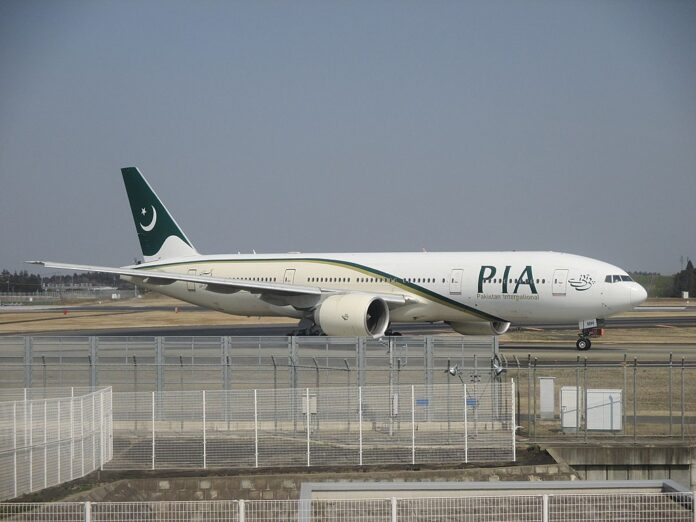Blue World City’s bid falls significantly short of the government’s Rs85.03 billion minimum sale price for a majority stake in PIA
In a disappointing turn of events for Pakistan’s privatisation efforts, the government’s first serious attempt to privatise the beleaguered Pakistan International Airlines (PIA) faltered on Thursday. The only bidder, Blue World City, a real estate developer, submitted a final offer of Rs10 billion, which is a mere fraction of the government’s set minimum sale price of Rs85.03 billion for a 60% stake in the airline.
The bidding process, which was publicly televised, was brief and largely uneventful, with Blue World City being the sole participant. Their bid of Rs10 billion equates to just 12% of the minimum sale price approved by the Cabinet Committee on Privatisation, highlighting a significant gap between the government’s expectations and market realities. In US dollar terms, while the minimum price stood at approximately $305 million, the bid represented only around $36 million.
Prior to the bidding, the Privatisation Commission board and the Cabinet Committee on Privatisation convened separately to discuss the process. Notably, the event was sparsely attended by government officials; only two federal secretaries were present, and no ministers were on hand to witness the proceedings. This absence raised eyebrows about the government’s commitment to the privatisation initiative.
Embed from Getty ImagesUpon receiving Blue World City’s offer, the government extended an invitation for them to match the minimum sale price. However, the company’s owner, Saad Nazir, confirmed their decision to stick to the original bid. “We have considered the government price and decided to stand with our best price of Rs10 billion,” Nazir stated, effectively signalling their unwillingness to engage further in the bidding process.
Blue World City’s participation came after a substantial drop-off from the six parties that had initially pre-qualified for due diligence. Five other firms chose not to submit financial bids, primarily due to dissatisfaction with the government’s conditions regarding tax liabilities, guaranteed investments, the expansion of the airline’s fleet, and the retention of existing employees. The companies that opted out include notable names such as Arif Habib Corporation Limited, Fly Jinnah, Younus Brothers Holdings Private Limited, Pak Ethanol Private, and Air Blue.
The lack of competitive bidding and the stark difference between the government’s price expectations and the sole bid have raised concerns about the future of PIA’s privatisation. The airline has faced years of financial turmoil and operational challenges, making the successful transfer of ownership crucial for its potential recovery. However, with just one bidder emerging and no other companies willing to engage, the privatisation plans seem to be at a standstill.
This situation underscores the broader challenges facing the Pakistani government in its attempts to privatise state-owned enterprises, particularly those that have been struggling for years. As discussions surrounding PIA’s future continue, the government may need to reconsider its approach to attract more viable bids and ensure a successful privatisation process.
